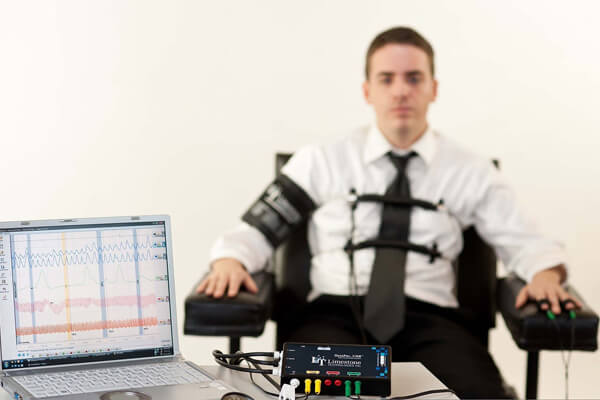Where Can I find a Lie Detector Test Near Me ?
American Polygraph Examiners may be able to offer you a private, personal, lie detector test, near you. Find where you can take one today.
- Alabama
- Alaska
- Arizona
- Arkansas
- California
- Colorado
- Connecticut
- Delaware
- Florida
- Georgia
- Hawaii
- Idaho
- Illinois
- Indiana
- Iowa
- Kansas
- Kentucky
- Louisiana
- Maine
- Maryland
- Massachusetts
- Michigan
- Minnesota
- Mississippi
- Missouri
- Montana
- Nebraska
- Nevada
- New Hampshire
- New Jersey
- New Mexico
- New York
- North Carolina
- North Dakota
- Ohio
- Oklahoma
- Oregon
- Pennsylvania
- Rhode Island
- South Carolina
- South Dakota
- Tennessee
- Texas
- Utah
- Vermont
- Virginia
- Washington
- West Virginia
- Wisconsin
- Wyoming
What Is a Lie?
According to the official definition of the Merriam-Webster Collegiate Dictionary, a lie is:
to make an untrue statement with intent to deceive
to create a false or misleading impression
Lying is much more common in everyday life than you would like to believe. It plays a considerable but largely clandestine role in our existence.
Indeed, not only must it be ignored by those to whom we lie, but moreover to be able to use all the resources of it it is necessary that we ourselves be abused on its nature and its mechanisms.
Thus the lie admits the following three mechanisms to manifest:
- A fairly exact knowledge of reality
- A discrimination between the objective and the subjective (which is not yet the case for children)
- A sufficient imagination to build the fable and prepare for a possible loophole
It can be seen in a common way that lying exists, but also that the lying methods are extremely varied. We can lie for example:
- By simple silence or omission
- In writing
- By expressions, attitudes
The motives are also as numerous as the different reasons that the subject can have to lie, such as for example: interest, greed, hatred, revenge, passion, defense, sacrifice, the need to value themselves, etc.
The motives of the lies can vary according to the following criteria:
- The age of the liar
- The personality of the author of the lie
- The circumstances that will surround the lie. So it will often be associated with crime, scam, it can also be used to exonerate the author of a fault.
How Does Lie Detection Work?
To do this, we use a lie detector, also called a « polygraph ». According to its successive inventors, the emotional reaction caused by lying does not translate into a single marker making it possible to define a liar for sure, but it would vary a set of psychophysiological parameters.
This is why the machine relies on multiple measures to betray liars.
Connected to electrodes, the suspect is therefore subjected to the measurement of blood pressure, heart and respiratory rate, skin conductivity (which varies according to perspiration), pupil diameter, body temperature, etc.
During the interrogation, some general questions (name, address, date) are asked in order to obtain « control » data records.
Then the real questions related to the survey are asked. The recorded measurements are compared with each other at the end of the interrogation and the suspect is accused of lying if a significant change in psychophysiological parameters is observed during certain questions.

More Information
The polygraph examiners are committed to making your experience taking a lie detector test as friendly as possible without compromising integrity and standards in the profession. Get a test scheduled at a location in your area.
A standard test contains 3 main questions, on the same subject matter (with single-issue testing). The remaining questions are general fill-in questions, which are placed between the 3 main questions. Keep in mind, most polygraph tests are given to get the truth regarding one, very important, question.
Do you need to know the truth? Do you need to prove the truth to someone else?
A test may determine the truth in a variety of issues, including:
- Family
- Infidelity
- Sexual Contact
- Sexual Allegations
- Integrity
- Theft
- Drugs
- Abuse
- Addictions
- & a variety of other issues
It’s confidential, professional and accurate.


